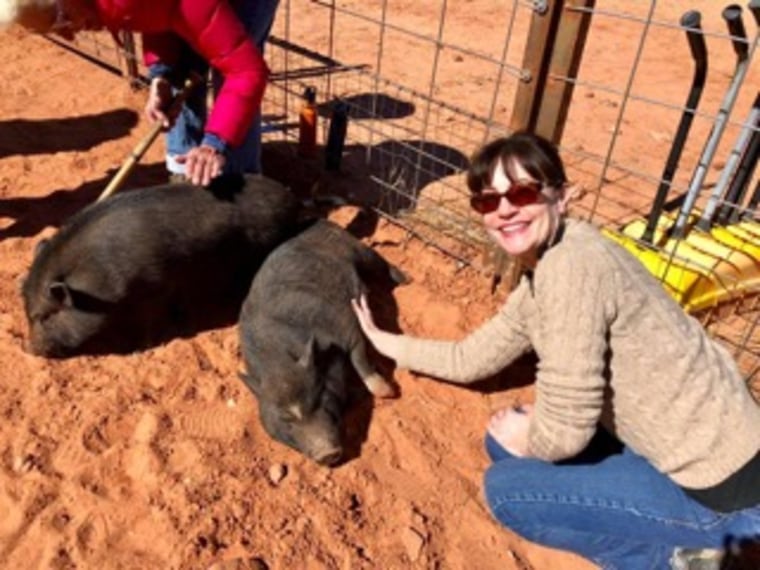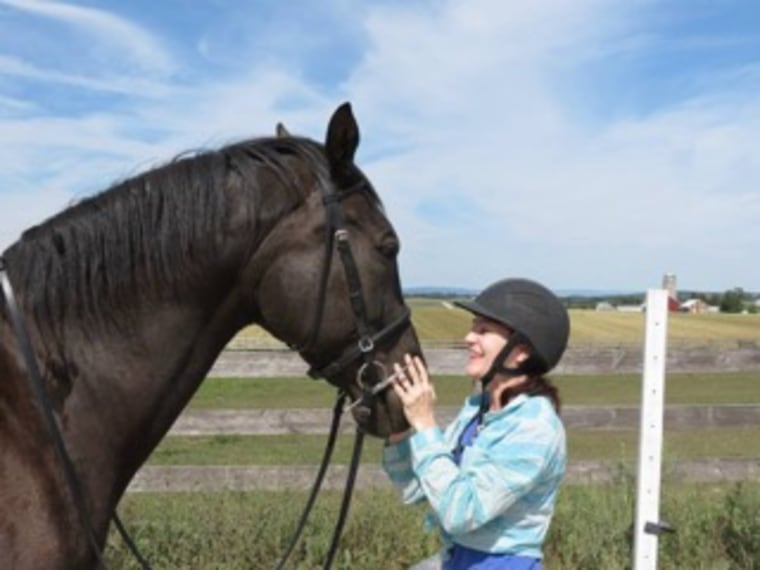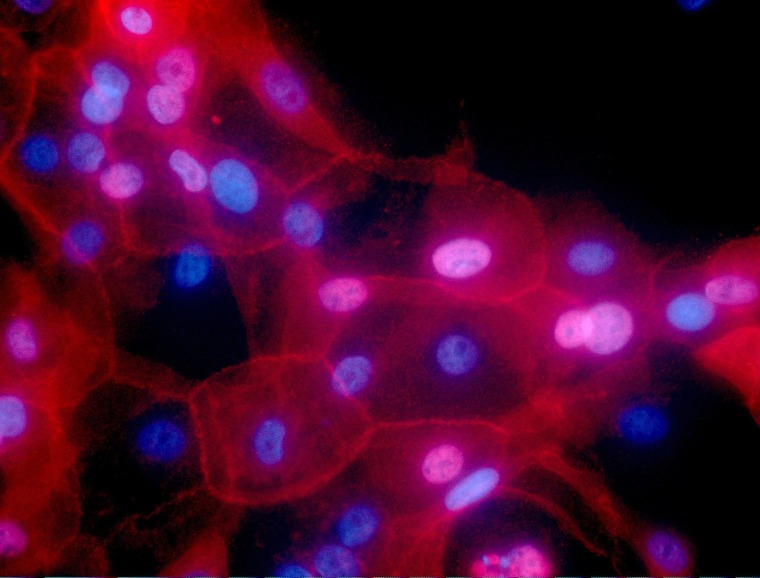Dorothy Laincz turned 50 on Sept. 12, and just nine days later came another big life event. But this one is something no woman wants to experience: She was diagnosed with breast cancer.
It was a somber moment for Laincz, a freelance marketing writer from Carlisle, Pennsylvania. Just a few weeks earlier, she had her annual mammogram and received an all-clear from her doctor.

But ever since 2010, after a mammogram revealed pre-cancerous calcifications in her right breast that required a lumpectomy, Laincz feared she would be diagnosed with cancer someday.
Luckily, every year she still visited the breast surgery practice that conducted her lumpectomy. At that appointment in September, Laincz mentioned to her doctor that a longtime cyst now felt uncomfortable, and she also felt a tiny lump next to it.
The lump was cancer: an approximately 1.7-millimeter tumor caused by Stage 1A invasive ductal carcinoma.
One month after her diagnosis, Laincz reflected on what she’s learned – and what she wants other women in her situation to know. After all, one in eight women in the U.S. will be diagnosed with breast cancer in their lifetime.
Take time to grieve, but make sure it doesn’t swallow you up.
“When I had the initial appointment with the radiologist saying it didn’t look good, I just knew it wasn’t ultimately going to be good news. I got in the car and cried so hard that I couldn’t breathe for a half hour. Then I drove myself over to a friend’s house and played with their new puppy just to distract myself for a moment.
The pathology report was a week later, on a Friday, and I got my result on the following Wednesday: cancer. I went home and I truly cried for a whole day – a full eight hours. And I could have cried much more. It’s good and normal to feel it. But at a certain point you just have to tell yourself you have to stop crying. It’s not going to change anything or help anything.
In a way, it’s helped to be a freelancer because if I don’t work, I don’t get paid. I’ve had to keep taking on work and plugging away at it, which has been really good for me. If I worked in corporate America and could have taken paid leave, for me, I think it would have been too much time to think. I also went on a long-planned trip to Utah three weeks after my diagnosis – and knowing I had that to look forward to, plus the change of scenery, really helped me. Sometimes I just go out and cut the grass. You can’t think about it all day, every day.”
Get a second opinion – and don’t apologize for it.
“First I went to a surgeon who was in my insurance network, and she talked about making a straight incision across my breast. I was uncomfortable with that because I knew there were other options to reduce the scarring. So I explained I wanted to get an opinion from the breast surgery group that I had worked with but was out of my insurance network.

And wow, I could tell the first surgeon was not happy. And I felt like I needed to make an excuse: ‘Oh, it’s just that my insurance might be changing in 2019, and I’ve known this breast surgeon for years so I want to keep them involved…’ And then later I thought, wait, I don’t need to make an excuse! It’s your body. Talk to 25 people if you want.”
It’s OK to tell your doctor you need time to consider options.
“Once you receive a diagnosis, it all gets moving so fast. Immediately the doctors begin talking about absolute risk versus relative risk and what mucinous means and the size and grade and receptors of your tumor. Suddenly it’s, ‘Let’s give you the Lupron shot and get you into menopause so you can do this particular treatment!’
It’s just…wow. You’re scared and you’re tired and now you’re overwhelmed. And it’s tempting just to nod your head along with what the doctor says. Women especially, we’re not trained to speak up. But it’s important to take the time to stop, educate yourself and do your research. A huge part of this is being comfortable with your decisions, and if you don’t have time to consider them you won’t be comfortable.
And these are major decisions. You might be talking about an invasive treatment, or a medication you’ll be on for five or 10 years of your life. Telling your doctor you need time is more than OK. Waiting three or four days at any point in this process to do your research is not going to be a make-or-break.”
Let people help you.
“I started going to the gym four months ago because I was concerned about osteoporosis – ironic, because one of the cancer treatments we’re considering for me can cause it! After I told the women at the gym about my diagnosis, they offered to hold a fundraiser for me. I said, ‘No, no, no, there are so many people out there who are worse off than I am.’ Eventually a friend told me, ‘Dorothy, you have to put yourself in their shoes. You would want to help them. So let them help you.’ That really put it in perspective for me, so I reversed course.
But that’s been one of the most difficult things: Accepting help when it doesn’t feel comfortable to take it. I’ve been single a long time, so I’ve become incredibly self-sufficient and independent. That’s a good quality, but it can cause difficulty when people offer assistance. I’m learning this lesson, and many others, day by day.”
